
by Robert Bowie, Jr. | Apr 19, 2019 | Operetta, Plays
As I wrote last week, my day job now is to write a “bawdy libretto” for an operetta about the seventh deadly sin: pride. It will be performed in NYC (and hopefully elsewhere) next year. I now have three plays in the works. One was produced in New York last October and remains in development for future professional productions. One I have reworked and is now as fresh as spring time and ready to be sent out. And one I killed by overwriting, but it is on the autopsy table for study.
Right now the future is the libretto for a bawdy operetta. This is what I’ve learned so far:
My bosses and co-collaborators are Christian and Patrick, the founders of Mind the Art Entertainment. Their six previous operettas about the six other deadly sins have either been performed in New York or are in development for performance. This thing is going to happen, baby! These guys are real, and real talented.
But this is what they have taught me: collaboration. They are amazing. They told me to write a libretto. They said they needed 10 songs in the first act and eight songs in the second act. There would be eight actors performing over 35 rolls, it would be entirely sung and it would be a bawdy comedy. Once I wrote the libretto Christian would put music to it. But I had never really understood artistic collaboration before. I kept going to them and saying “is this what you want?” “Is this what you want?” And I kept getting the answer: “Write the libretto you want to write! Make it your voice. Make it your story.”
“How about if it’s totally rhymed?” “How about if I try and do hip-hop?” “How about if I have a singing dog?”
Last Friday I met Patrick at the Opera Center in New York and we were scheduled to work through the first draft that I had provided. It was a corner room with wood floors and perfect acoustics. The sunlight came in through the seventh floor windows. We worked at a central table in the middle of a room, which was much larger than we needed.
I started with my same stubborn questionings: “Is this what you want?” Patrick, almost with an air of irritation, said again: “Write the story that you want. Tell the story that you want. We will collaborate. We will collaborate.” And we did for the rest of that day.
He knew the first draft as if he had written it and just offered ideas for consideration. They were amazing and creative beyond my wildest expectations. I had expected head-banging. I got laughter and collaboration instead. Later on the next night Christian and I went out to dinner at the Algonquin Hotel, the historic home of the round table and Dorothy Parker, and he leaned over and laughed and said, I can write to your words. The rhythms makes sense. And we both laughed. I asked for his thoughts and because I had not brought paper I took notes on both sides of a bar napkin and carefully folded it and put it in my wallet before we left to say good night.
I am now halfway through April and deep into the second draft. This is more fun than I could ever have imagined.
As we closed the bar late that night, Christian said: “Our job is to create art and have fun.”
Thanks to Christian and Patrick, I’m learning that.

by Robert Bowie, Jr. | Apr 3, 2019 | Politics
Let’s agree on one thing.
We are Americans.
We are not two polarized political parties. We must never forget that. We are Americans. We agree?
In light of our agreement let’s take a fresh look at: 1) gerrymandering and 2) the Mueller report.
First let’s look at gerrymandering. Politicians should not be able to reelect themselves by defining their districts. They are our employees. Our taxes pay their salaries and lavish benefits ( but that’s another story). Whoever heard of dividing a country to secure your own job?
The Supreme Court has once again an opportunity to address redistricting and gerrymandering. This issue is so much greater than any single provision in the Constitution. It is at the very bedrock of our republic/democracy. Very early on the Supreme Court recognized “the right to travel between the states” or “Constitutional judicial review” that are not in the language of our Constitution but are at the bedrock of our government. We are Americans.
Second, let’s look at the Mueller report. It is absurd to define the question as “collusion“ or “conspiracy.” There is no doubt that the Trump presidential campaign and the Russian government both wanted to see Trump elected. Two horses pulling the same wagon don’t have to “conspire” or “collude” to make the wagon move forward, if it is in each horse’s interest to move in the same direction.
The question is, should the Russian horse be pulling the wagon at all. I think every American would agree we do not want a foreign government involved in any way in our elections and in any way affect our choice of leaders. The Mueller report misses the point. Who cares about “collusion” or “conspiracy”? That’s not the issue. The issue is that no foreign government should intervene in our democracy in any way. We are Americans.
There are two things I learned as a lawyer: 1) if you let me define the issue I will always win the argument, and 2) once you make up your mind any reason will do.
As Americans I think we have let others who do not have our interests at heart define our issues.
I think all Americans would agree that they do not think it is appropriate for their elected officials or political parties to secure their jobs at our county’s expense.
I think all Americans would agree that it is inappropriate for a foreign government to affect our elections in any way.
Polarization can create this kind of chaos. As Americans we have prospered because we have always trusted each other to talk, and then compromise. How did we lose this? That is our genius.
Rise up! We are better than this. We are Americans.
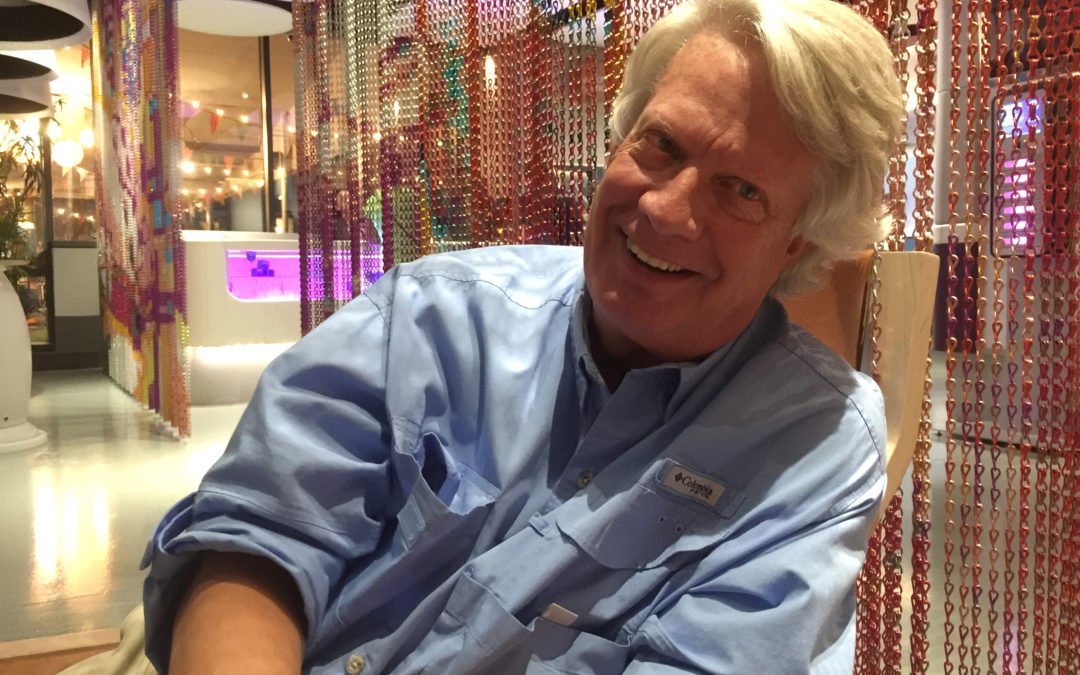
by Robert Bowie, Jr. | Mar 19, 2019 | ONAJE, ONAJE Update
The impossible dream continues and maybe even is gathering steam.
Sue Marinello, Onaje’s producer and her ever-talented daughter Katie, are marketing Onaje after its spectacular reception at the New York Fringe festival in October. During the preparation for Onaje’s opening and throughout the production and thereafter, I have made many friends who have taught me in a way that only talented and experienced people can.
After the close of the show I was invited to write a libretto and help co-write the book for an operetta produced by Mind The Art entertainment for Christian De Gré, the super talented composer of, and producer of numerous successful operettas and musical pieces in New York.
I am finishing the first draft by the end of March and then going over what I have written with Patrick Alberty, the co-writer of the book and Christian in April, and then going to Mexico for a week with this team to put Vox Populi, “the voice of the people,“ based on the seventh deadly sin of pride, into a final format for marketing and production.
I have almost finished the first draft already and I’m optimistic and full of joy at the future prospects of this and other pieces I am working on. Though I loved the service to others that I was blessed to be able to do as a business lawyer, this life after law is truly a dream I have always had come true.
I will keep this blog alive and track my progress by it.
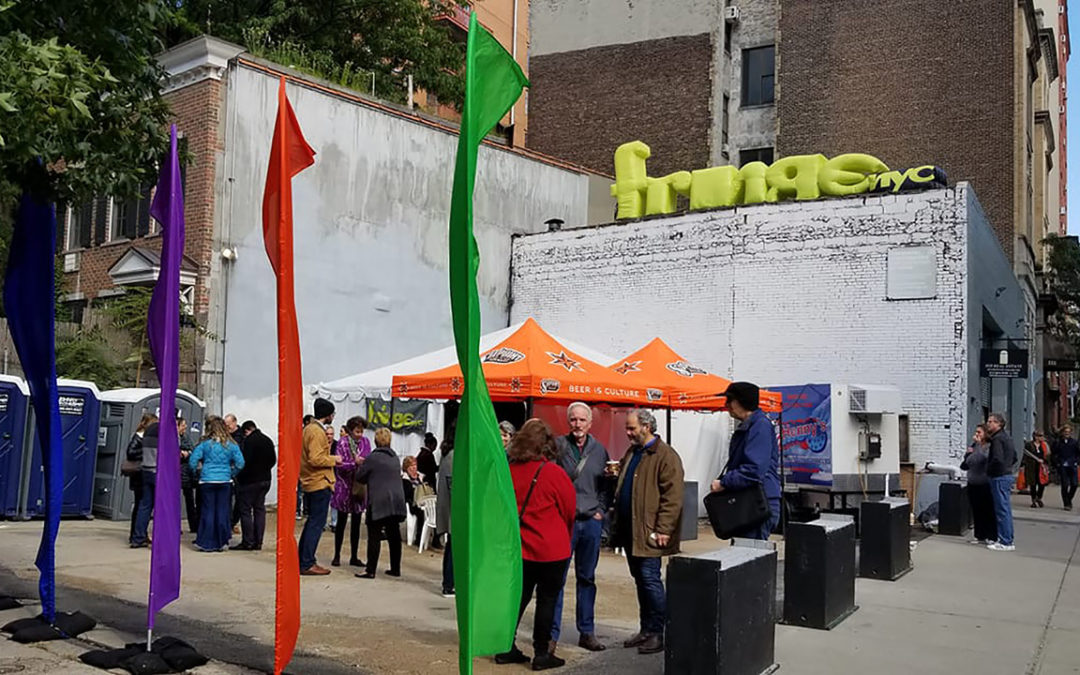
by Robert Bowie, Jr. | Oct 28, 2018 | FringeNYC, ONAJE, Personal
In the West Village of New York City, on October 13th at 7:00 in the evening, ONAJE opened as my first professionally produced play. I sat in the back, in a balcony with lights and sound equipment around me and watched the audience file in and take their seats. I gave the appearance of being calm but I was terrified.
I have been to opening nights for nine of my prior plays in the little theaters of Baltimore and I have learned there is an immediate courtship: the call offered by the actors at the beginning of the play and the audience’s response. You can feel it. It is confirmed with the first laugh but the commitment can also be felt in the early silence.
As the play unfolds, from the back of the theater, you can watch for physical movement, restless disengagement as evidence of the loss of commitment to a play. It can become contagious in the dead silence and then nothing can resurrect the play. Once you lose them, there is no getting them back.
My friends, the composer Christian De Gré and our producer Susan Conover Marinello, and I had been fortunate to have Tom Viertel as our dinner guest three weeks before we opened. Based on years of experience as a renowned Broadway producer, the founder of the Commercial Theater Institute, and director of the O’Neill, he told us a “no-intermission play cannot run more than 93 minutes” without the high risk it will lose its audience. There was no doubt in his voice. We took his advice. We knew he was right. I went to work cutting lines and shaping the script with four script reductions.
Opening night at FringeNYC was to be judged by a sold-out crowd as they rendered their verdict first in the dance of commitment as the play got underway and then after 90 minutes by the way they moved in their seats.
For me, knowing every line and the slightest modulations in an actor’s voice, the experience was, of course, different than an audience seeing it for the first time. The audience will be engaged until they’re not. The only measurement that is credible is how the theater feels and how the shadows in the seats sit engaged or start to move. That is the only language.
I could feel this audience’s early engagement and commitment to the play and surprisingly when I did, I started to daydream about the genesis of this project:
I am the oldest son. The oldest son of the oldest son of the oldest son, all of whom have been well-respected and distinguished lawyers, professors, and public servants. Although my father supported my love of storytelling, bringing me hand puppets from his travels and building me a little puppet theater so I could perform for my seventh- and eighth-grade classmates, there was no doubt my next step was to carry on the family profession of law.
While I dreamed of writing plays, I grew to love being a business trial lawyer. Before my father died several years ago, while I took care of him during his final years, he quite casually one afternoon looked at me and said, “I am very proud of what you have accomplished. I could never have started a law firm and succeeded in the way you have.”
Almost accidentally, he had released me to change my avocation to my profession. I soon retired and made a full commitment to become a professional playwright.
Opening night at FringeNYC was for me, unconsciously, like a flock of carrier pigeons released well over fifty years ago coming in to roost.
The last seven pages of the play runs 12 minutes to conclusion. I leaned over the rail and listened for the quality of the silence and looked down on an audience that did not move. They were engaged after 96 minutes, three minutes longer than Tom’s ultimatum. We had pushed the envelope but still survived.
The lights came down and there was a moment of silence, and as the actors came to their curtain call they were met by increasing and sustained applause. As the theater emptied out I saw many of my friends, some of whom had traveled from as far as California and Canada, as they walked to the stairs to exit past my door from the balcony.
I was not conscious at the time, even after I was welcomed by the audience and my friends, that like the characters I had written in ONAJE, after a long journey, I had finally come home.
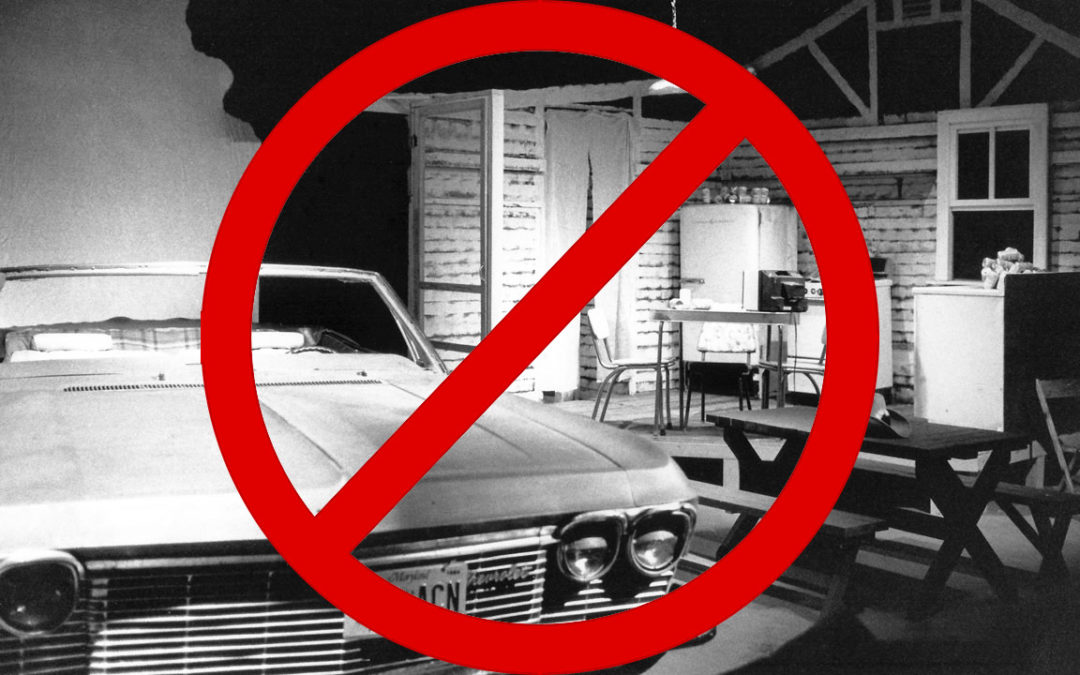
by Robert Bowie, Jr. | Sep 15, 2018 | FringeNYC, ONAJE
The beauty of FringeNYC is that it demands creativity from the start at every level.
By way of example, I want to introduce you to the creativity and resourcefulness of our director, Pat Golden, and producer, Sue Conover Marinello.
ONAJE has set directions that specify a convertible with working lights, horn, and doors, a picnic table that might weigh several hundred pounds, and a working kitchen in a waterman’s house next to the Chesapeake Bay on the Eastern Shore of Maryland.
FringeNYC is similar to a film festival in that a new performance goes up in the same space with only half an hour in between. Each play is given 15 minutes to set up and 15 minutes to break down the set. Obviously, we cannot assemble and deconstruct and store a set that contains a car, a big picnic table, and a kitchen in 15 minutes!
Nonetheless, ONAJE’s creative team is embracing the challenges as an opportunity to increase the impact of an already dramatic play — using light and sound and imaginative props to create a set that will be constructed in the minds of the audience.
Their ideas are already better than what was originally called for in the script.
Come see for yourself this October! We should know our venue and performance dates soon. If you’d like to secure advance tickets you can do so by helping us with a contribution: https://theplayonaje.com/contribute.
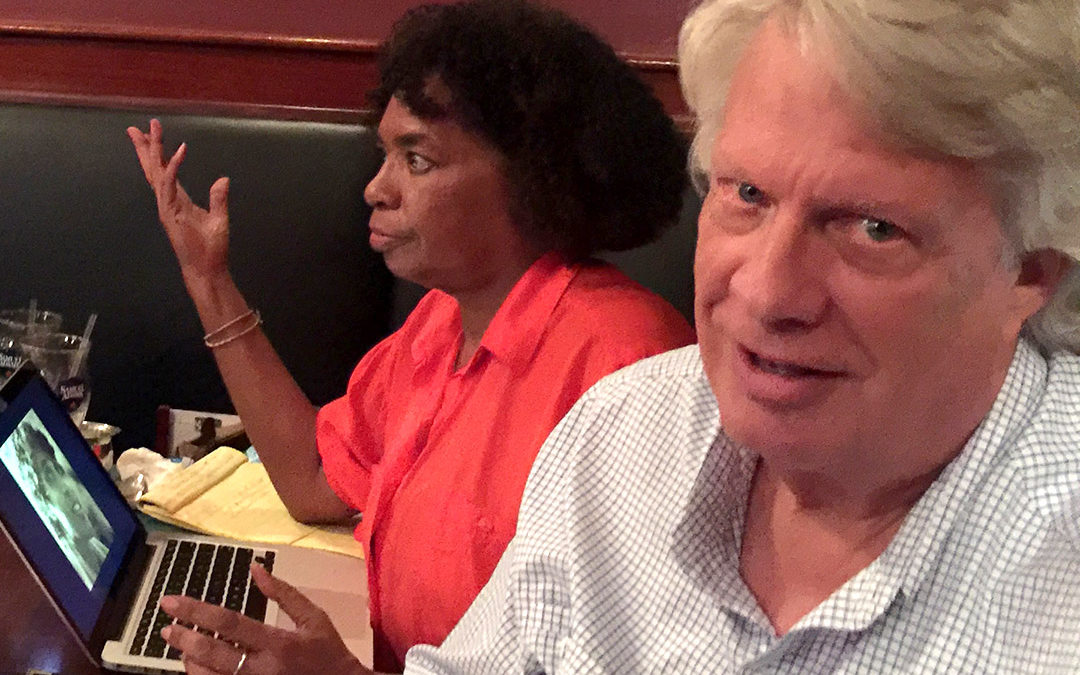
by Robert Bowie, Jr. | Sep 12, 2018 | FringeNYC, ONAJE
I am continually humbled by the amazing talents of the people who have come together to help bring ONAJE to life at FringeNYC. Two standouts are our tenacious, indispensable producer, Sue Conover Marinello, and our inspired, insightful director, Pat Golden. I am thrilled to have Pat’s creative guidance and casting acumen.
A little about Pat:
Pat Golden is an award-winning director and casting director for stage and film, and has had an extensive career that includes Broadway, Off-Broadway, Regional and International credits. She was Assistant Director to Emily Mann on the Broadway production of A Streetcar Named Desire, and has been affiliated with The Ensemble Studio Theatre (EST), Cherry Lane, Lincoln Center for the Performing Arts’ Mostly Mozart Festival and many other venues.
Pat is also a filmmaker and Casting Director, known for discovering new talent. She won the Artios Award for Best Casting in a Feature Film (Drama) for Platoon, and was nominated for Blue Velvet. Other feature credits include Gimme Shelter, The Handmaid’s Tale, and The Killing Fields. She’s worked with Lee Daniels Entertainment, New Line, Warner Bros and PBS as Associate Producer.
We are truly fortunate to have Pat’s incredible talent, experience, and dedication for ONAJE. Come to FringeNYC in New York this October and see for yourself!
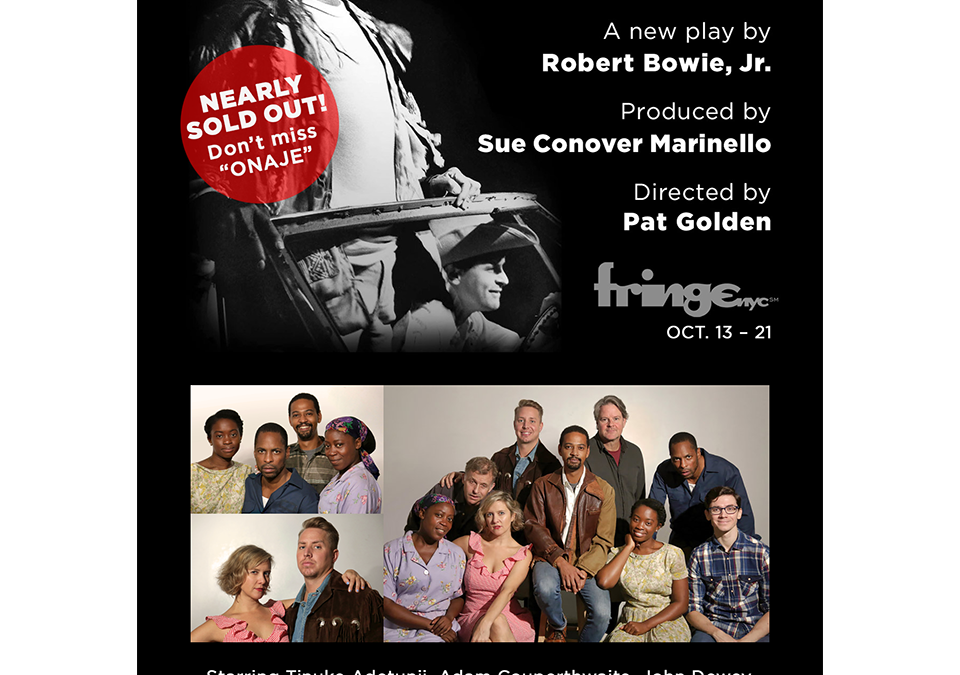
by Robert Bowie, Jr. | Aug 21, 2018 | ONAJE Update
FringeNYC a Smashing Success!
We’re honored that ONAJE was selected as an official production of FringeNYC, with five sold-out shows, October 13th — 21st, and great audience and critical acclaim.
It was a thrill to have our fantastic director Pat Golden on board, and our phenomenal producer Sue Conover Marinello. Our talented cast was outstanding: Tinuke Adetunji, Adam Couperthwaite, John Dewey, Curtis M. Jackson, Mary E. Hodges, Sheila Joon Ostadazim, Bristol Pomeroy, Tim Rush, and Jay Ward.
Humbly, I must say it was an incredible honor and opportunity, and it’s all thanks to our generous contributors. Please email me to connect — let me know if you’d like to hear about our next production.)
by Robert Bowie, Jr. | Aug 14, 2018 | Personal
For years and years, I practiced law and total strangers would stop me and say “Yer a lawyer, aren’t you?”
I mean, really!
It started about a year after law school when I was learning to be a litigator. I loved being a lawyer but now I’m retired and in recovery. Strangely, no one asks that question anymore.
What changed? What were they picking up on in the first place?
We all know the world through our five senses, so which of the senses lead me to be identified as a lawyer? I’m portly enough to be the mayor of a small town. I’ve got a voice perfect for broadcasting large sports events. I’m not one of those instant huggers. I bite my own nails and when these people identified me as a lawyer they were not all downwind of me.
When I walk down the street now, I’m waiting for people to recognize me in a new light. “Yer a playwright, aren’t you?” Come see ONAJE this October at FringeNYC and help make that dream come true!
Join me on this adventure at https://theplayonaje.com.
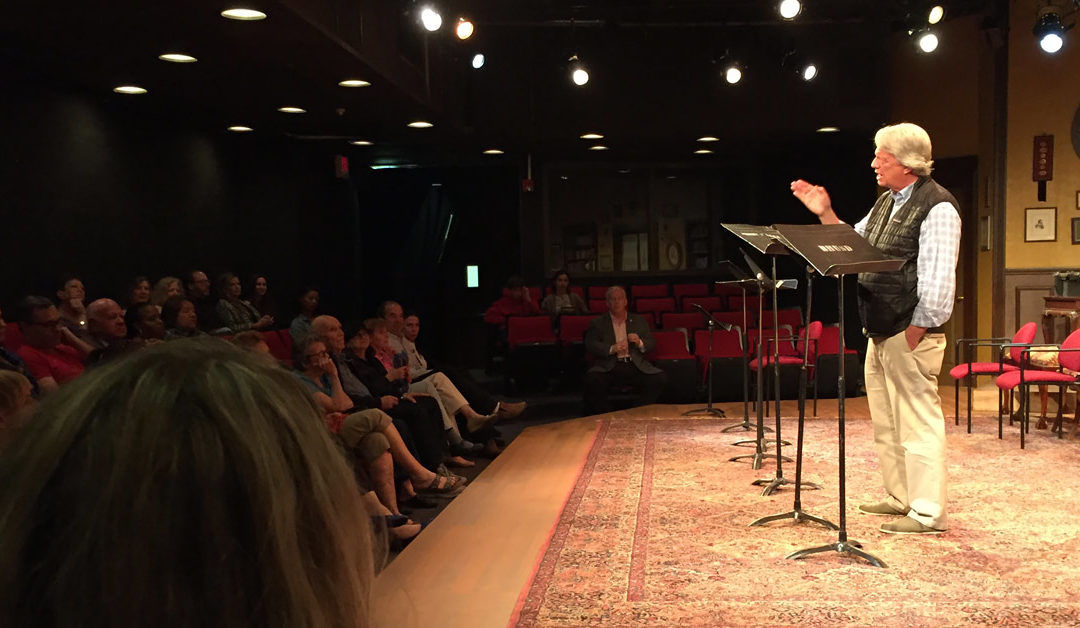
by Robert Bowie, Jr. | Aug 7, 2018 | ONAJE, ONAJE Update
ONAJE Staged Reading in L.A. a great success
ONAJE received a new staged reading at Theatre 40 in Beverly Hills on April 15th, superbly directed by Adrian Cohen and featuring an amazing cast: Travon McCall, Annalee Scott, Cathy Tomlin, David Hunt Stafford, David Welsby, Shaun Savage, Stephanie James, Frederick Dawson, Eric Keitel, and Patrick Hallahan.
We had a full audience, who were kind enough to stay afterward and give us some very helpful feedback. It was a great discussion, as well as a reminder of the impact that live theater can have.
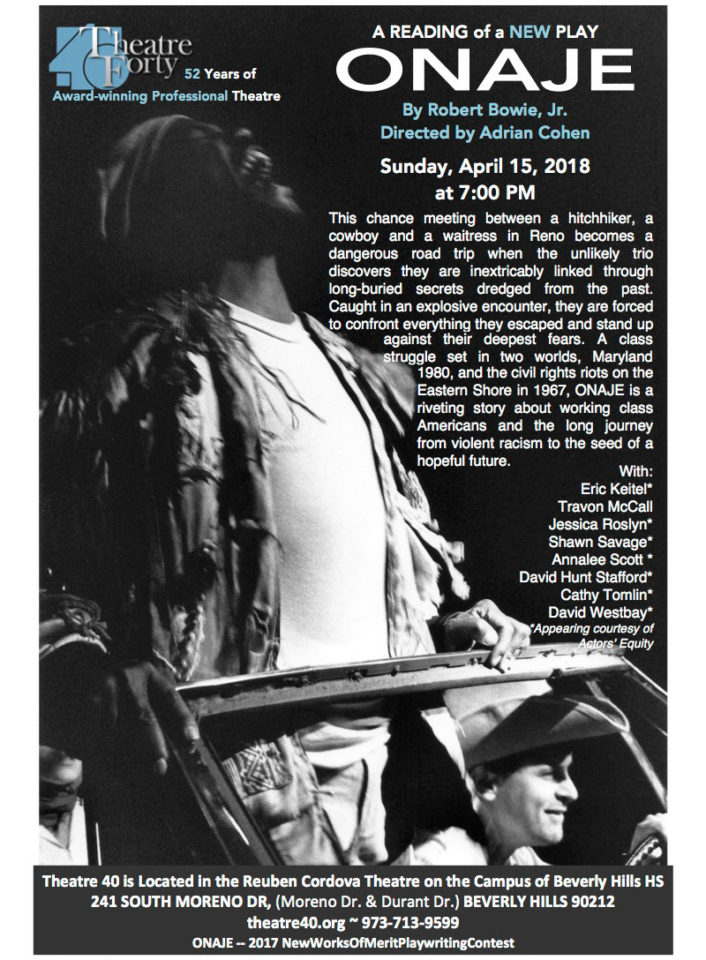

by Robert Bowie, Jr. | Jun 12, 2018 | FringeNYC, ONAJE, Plays
On May 24, 2018, at 3:25 pm I received an email from the New York Fringe Festival (FringeNYC.org) telling me that my play, Onaje, was accepted for production in New York in October.
At the heart of the play is the Civil Rights riots and burning of Cambridge, Maryland in 1967 —still sadly relevant 50 years later with civil disobedience in Charlottesville Virginia, but this time the President says “there are good people on both sides.” We are still “a house divided.”
I lived on the Eastern shore of Maryland as a boy that summer. I had grown up in liberal Massachusetts and had never experienced firsthand racism or the terror of being an outsider and the range of psychological damage which occurs from it.
My first day visiting the Eastern shore I was invited to go to a country club to go swimming in the club pool. I was not a hippie. My hair was long enough to go over the top of my ears but not over the back of my collar. As I approached the gate to the fence that ran around the edge of the swimming pool I saw the lifeguard looking at me as he descended from his tower to confront me before I entered.
When he stopped me at the gate he told me because of my hair I would have to wear a woman’s bathing cap. Swimming stopped and parents and children looked at me. All the men had short crew cuts and all the women had long hair but were not wearing bathing caps. That was in early June the riots occurred in late July.
I will continue writing in this blog about the production of the play up until I’m through its final performance in October in New York. I don’t know how it will land. This is the story of the first production of my play. Come and share with me the ride.
(We need help to keep the wheels on. If you can manage it, please donate.)









